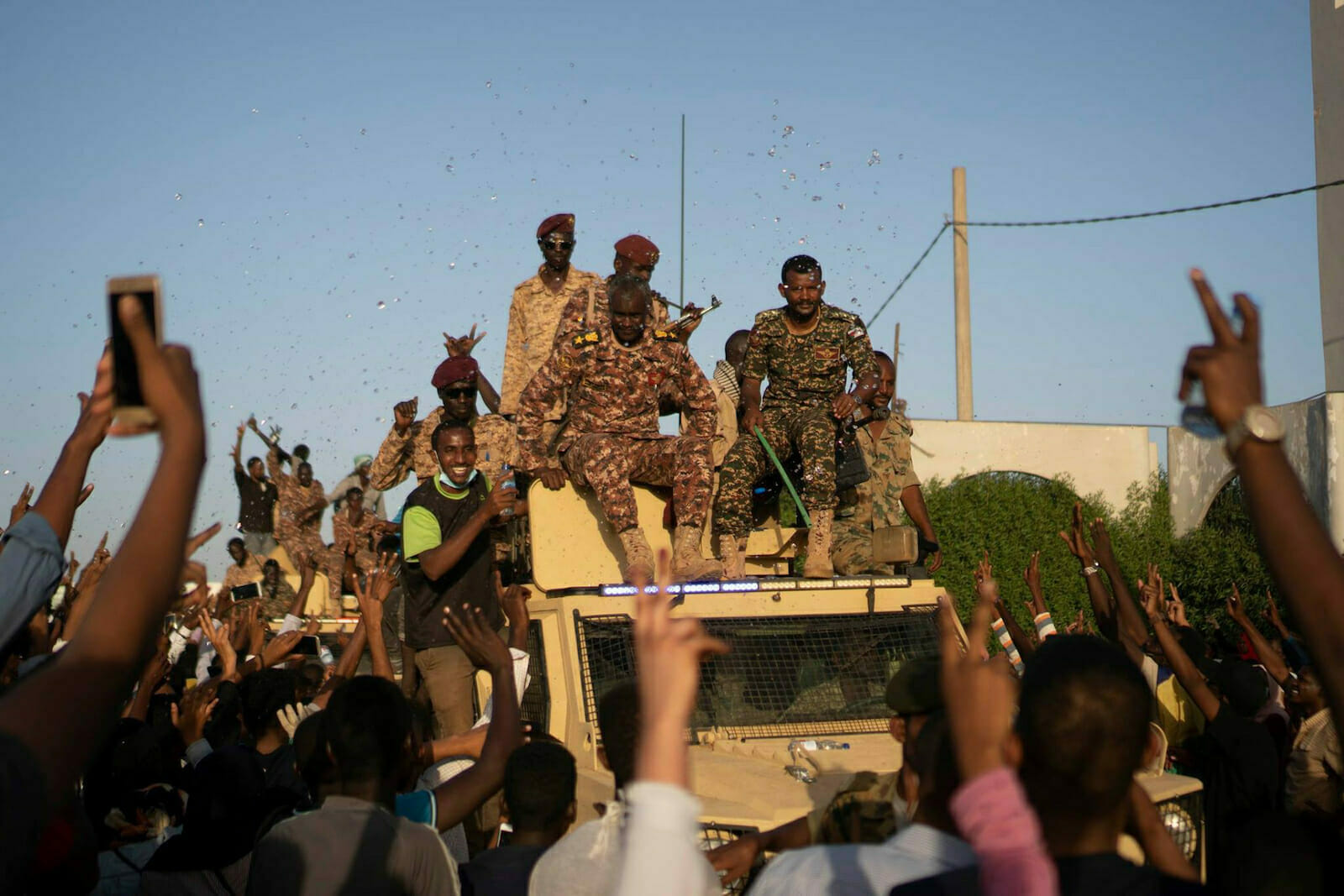
Sudan Crisis: Constitutional Declaration Agreed To, but There Is More
Caravans of vehicles crisscrossed the streets, horns blazing. Flags thronged the sky, songs of revolution reverberated and shouts of joy filled the air. The mood was ecstatic. News of the successful signing of a constitutional declaration that would pave way for an interim government, which eventually would work out modalities for the return to civilian rule, had filtered into towns and the Sudanese people on the streets of Khartoum could not help but express their joy.
Sunday, August 4th would go down as a memorable day and the Forces of Freedom and Change (FFC) would remain indelible in the hearts of the Sudanese people who had put in a strong fight to force the ruling Transitional Military Council (TMC) to agree to some of its terms.
“Today, the civilian state is achieved,” 21-year-old Nusseibeh Abdullah, said. “Now we can tell the martyrs that their blood was not wasted,” another protester said. For Somaiya Sadeq, the longing for a civilian government to be in place enables her to forget the pains of the dead. “We have been waiting for a civilian state to seek fair retribution from the murderers of our sons,” she said.
For the deputy head of TMC and arguably the most powerful individual in Sudan, Gen. Mohamed Hamdan “Hemedti” Dagolo, it has been a tough fight and a decision which would be etched in the sands of history. “We turned a tough page of Sudan’s history by signing this agreement,” he told reporters. The declaration was also welcomed by TMC’s major backers – Egypt, Saudi Arabia, and the UAE. The Arab League as well declared its support for the declaration describing it as the aspiration of the Sudanese people.
The Long Tortuous Journey
The uprising, which brought in waves of continuous protests started in December 2018. The protests swept through virtually all parts of the country. It started when the deposed leader, Omar al-Bashir, increased the price of bread along with other austerity measures. The measures, government sources say, were based on International Monetary Fund (IMF) recommendations, which were aimed at restructuring the country’s economy after losing much of its oil resources when South Sudan separated in 2011.
But Orji Sunday, a Nigerian based journalist who covers global politics, thinks there were more to the protest than a mere increase in the price of bread. “To say the protest was because of bread price hike is to miss the point and insult the sensibilities of Sudanese people. There were more to it,” he said. “The causes were not immediate but remote.” According to Orji, the people wanted a new era and an end to a repressive government which had subjected them to hardship for three decades.
What started as a bread hike protest evolved into a revolution. The doctors’ union and other professional bodies played prominent roles in giving it a revolutionary shape. They documented the fatal wounds of some protesters and established clinics to treat others for gunshot wounds, the effects of tear gas and other injuries. Protesters defied the threat from the military and camped out in front of the military headquarters in Khartoum. Sometimes, live bullets were fired at them, which eventually led to the deaths of many. Soon, the world noticed the revolution and the UN Security Council condemned the clampdown. It grew more intense as division was noticed among the security forces and the protesters kept calling on the military to help topple al-Bashir. The tension added when a son of one the country’s top military officers urged his father to help topple the deposed leader.
On April 11, it eventually happened. The military toppled al-Bashir and held him in a prison in the capital. Two days later, a Transitional Military Council was formed with Abdel Fattah al-Burhan as the head and Mohamed Hamdan Dagalo, popularly known as Hemedti, as the deputy. Hemedti had a few days back declared his support for the protesters.
The expectations were high as negotiations for the modalities for return to civilian rule started. Hemedti was in charge of negotiations with the protesters. A couple of times it deadlocked, so much so that the protesters suspected sinister motives and returned to the streets. Hemedti, in charge of the brutal Rapid Response Forces (RRF), grew intolerant and clamped down on protesters.
On June 5, in series Facebook posts, the doctors’ association claimed the RRF killed 101 protesters, while 40 bodies were pulled from river Nile and about 326 injured during an attack on a major protest camp in Khartoum which started on June 3rd. This came a few days after negotiations collapsed. Thereafter, al-Burhan, the head of TMC, announced that elections would be conducted within nine months.
It has been a tortuous journey, hence the ecstatic celebration that followed the announcement of the signing of the constitutional declaration.
According to Al Jazeera, the declaration provides for an interim government which would run for 36 months, beginning from the day of the formal signing ceremony of the constitutional declaration on August 17. It also provides for a sovereign council. This council will oversee the creation of a council of ministers and a legislative council. The sovereign council will be an 11-member governing body, which will rule the country for 36 months. The body will be composed of five military personnel chosen by the TMC and five civilians selected by the FFC. The 11th member will be a civilian chosen by consensus between the two parties.
The sovereign council will be headed by a military general during the first 21 months, followed by a civilian for the remaining 18 months. The FFC will appoint the prime minister who will name a cabinet of 20 ministers from a list of nominees presented by the FFC. The ministers of interior and defence will be appointed by the military members on the sovereign council. The country’s armed forces and its paramilitary Rapid Support Forces will be led by the commander of the armed forces, who is also the head of the sovereign council.
‘No Guarantees in African Politics’
There are questions hanging around the sincerity of the leaders, especially of the military generals involved, and if the declaration will yield the desired results. For Orji, it is not yet uhuru for the Sudanese people because “there are no guarantees in African politics.” According to Orji, “The people have enough reasons to be happy. But the victory is not complete until total civilian rule is returned. There are no guarantees, especially when the military is involved. We have seen bigger shockers.”
Chioma Abuba, African affairs analyst and doctoral student at Dalhousie University, Halifax, Canada, agrees, to a large extent, with Orji. She thinks it is a little too early to say it’s all rosy for the protesters, averring that time only would tell.
“We must look at the flipside also, to be sure that the interests are purely, and sincerely people-oriented. There is absolutely no better alternative to democracy; true democracy, I must say. So I should think that the new government, when it does take off, will try to set things right, having come to power on the wings of popular protest, and knowing that it could face the same fate as the ousted Omar Hassaan al-Bashir, if it betrays the people’s will,” she said.
The duration of the transition is another reason for concern. Initially, the head of TMC, al-Burhan promised elections would be conducted within nine months. But details of the declaration show that transition would run for 36 months, fueling doubts on the sincerity of the generals. Also, the sovereign council will be headed by a military general for 21 months of the transition before a civilian would be allowed to head it for the remaining 18 months.
This period Abuba thinks could breed the feared. “Just for the sake of the benefit of doubt, and to be sure of thorough changes within the system, three years, though queer, may be allowed. The danger is that the longer the transition period, the more tendency for belligerent parties to be bolstered, and mass enthusiasm to wane,” she said. Continuing, Abuba opined that “with access to state resources in the next three years, the military forces may acquire enough internal and external support to hijack the government once again.”
The Same old Stock
Hemedti, who is most likely to head the interim government for the first 21 months, has questions of integrity. First, he is believed to be an ally of al-Bashir, though he betrayed the ex-leader when he declared support for the protesters. This, some analysts think, was a clear political calculation. Pitching his tent with the protesters when the protests became more intense and when it was becoming very clear that the dictator would be toppled shows clear shrewdness.
Also, he is the head of the brutal Rapid Response Forces and supervised the killings of protesters. On this, Abuba doubts if he is not on the same page with al-Bashir. “But if he is not, why were protesters killed in the midst of negotiations? Why were other civil means not sought to quell the uprising, other than shooting at students and youths in the streets?”
Although he is not facing charges of war crimes at the International Criminal Court (ICC), like his former ally, he has a long trail of human right abuses for his role in the conflict in Darfur. Human Rights Watch accuses him of overseeing human right abuses including “torture, extrajudicial killings, and mass rapes” in Darfur as well as in conflicts in the southern Blue Nile and Southern Kordofan states.
While the protesters have achieved the ouster of al-Bashir and now a constitutional declaration that could pave way for a return to civilian rule, the influence of the toppled leader is still very much in evidence. Orji agrees. “Al-Bahir has left, but his legacies are still there. Very much that the generals to lead the transition are part of his legacies.”

